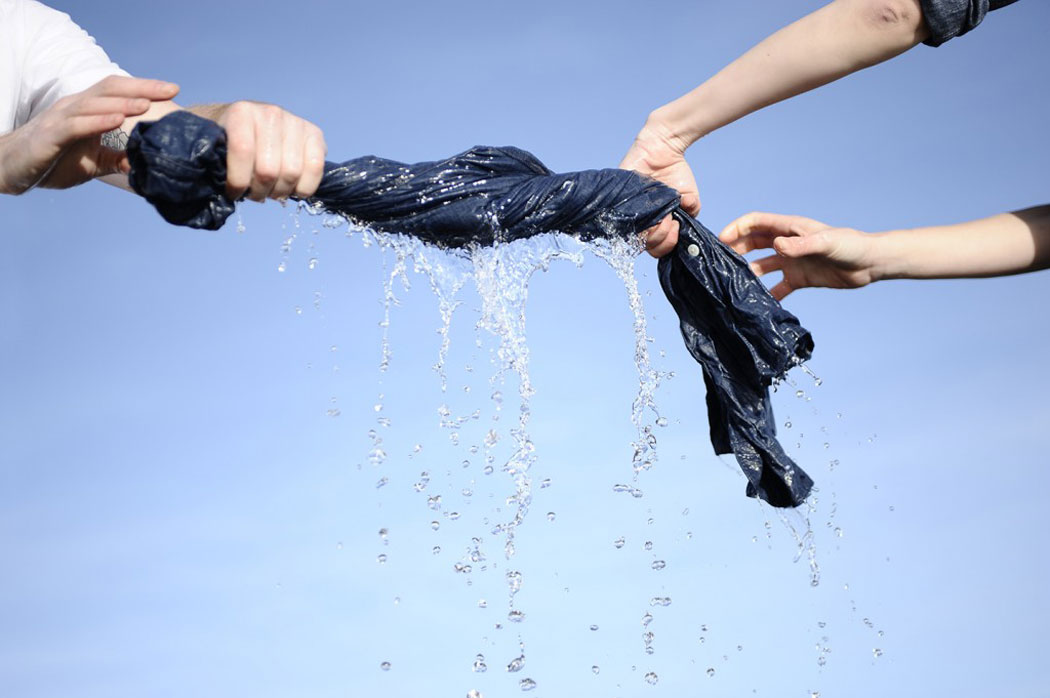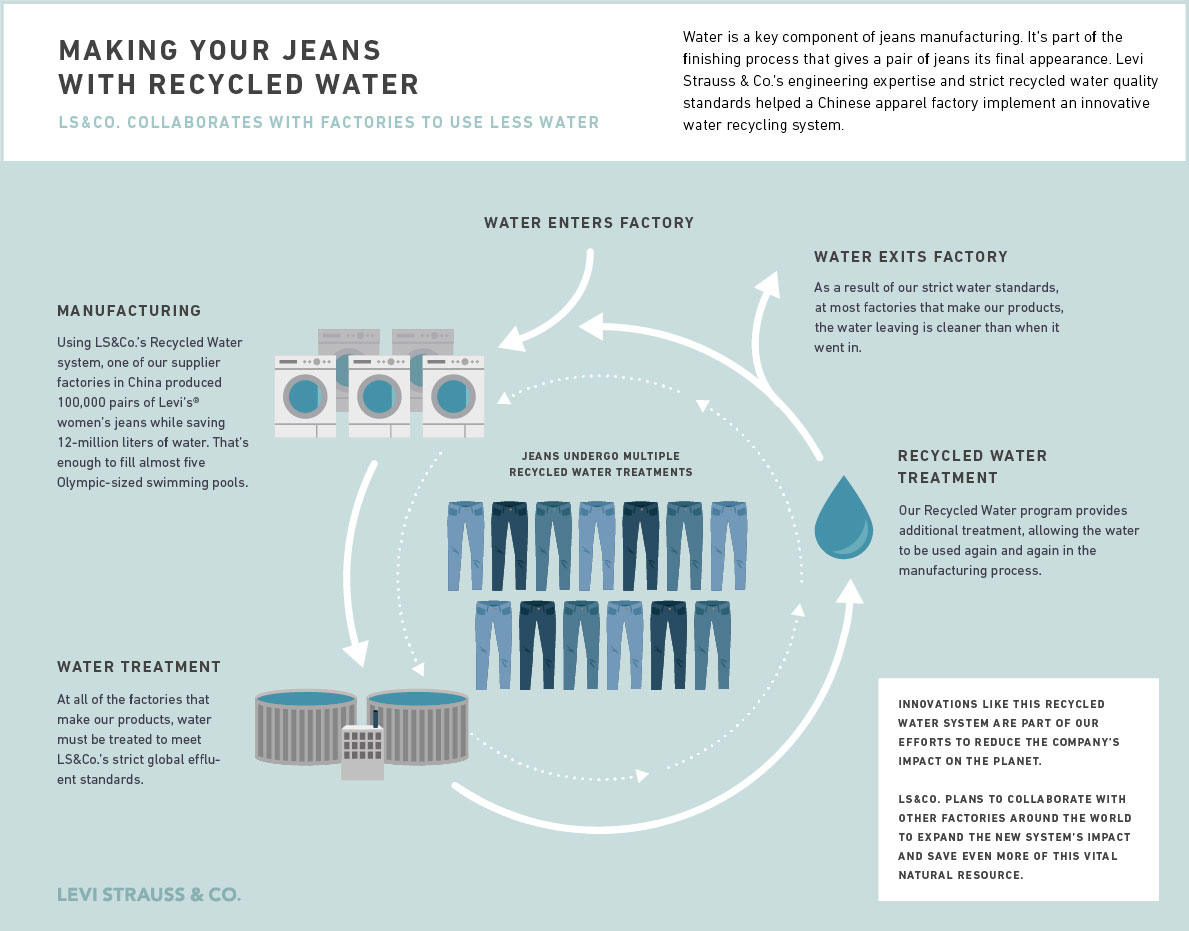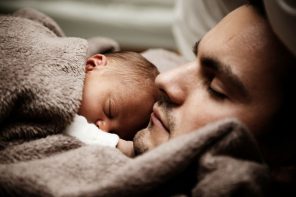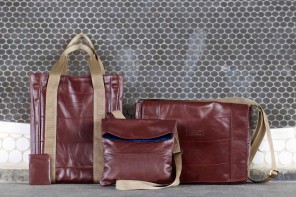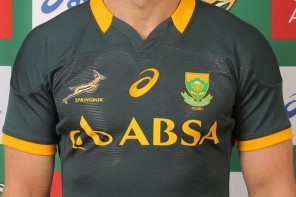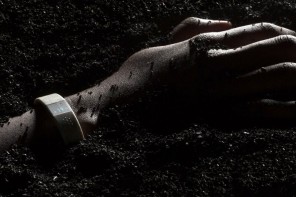Levi Strauss has developed a new way to make jeans using 100% recycled water. The denim manufacturer, which applied the first-of-its-kind process to 100,000 pairs of women’s jeans during a test run, says it saved some 12 million liters of water, or enough to fill nearly five Olympic-size swimming pools. The technique, according to Levi’s, is the result of a new, third-party-verified water-recycling standard designed to ease the stress of garment production on freshwater supplies.
One of the company’s key factories, located in southern China, worked with Levi’s to engineer a system that treats and recovers all the water used in the finishing process for subsequent runs. “This water recycling can happen over and over, significantly reducing the overall amount of water used to make our products,” says Reza Hosseini, manager of environmental site and compliance assessment at Levi’s. “As long as the water meets our standards to deliver the quality you expect from our brands, it can be recycled multiple times.”
Till now, there has been a dearth of standards for water recycling and reuse in the apparel industry, adds Hosseini. “This is a company and industry first,” he says. “And we believe this innovation can help change the way our supplier factories use water.”
Future plans include scaling up the program to include other global suppliers, including a Nicaraguan facility that will implement it later in the year. “We’re talking about it with other factories around the world,” Hosseini says. “The goal is to expand it across all of our collections — and beyond: We’ll share the recycled water standard with key industry stakeholders for other suppliers to use.”
Although the new standard is light on details regarding effluent-management, Greenpeace recently hailed the denim-maker a “Detox trendsetter” for its commitment to eliminating all hazardous chemicals from its supply chain by 2020. It was also among the first apparel firms to publicly disclose discharge data from its facilities online.
This isn’t the only time Levi’s has experimented with water-sipping innovations, either. In 2010, the company launched Water<Less, a collection of jeans that require an average of 28 percent less water and up to 96 percent for certain products.
via Ecouterre

